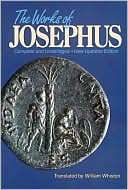Another example of ‘gospel’ language in the Greco-Roman environment is the inscription found at Priene (ca. 9 BC) about Augustus:
It seemed good to the Greeks of Asia, in the opinion of the high priest Apollonius of Menophilus Azanitus: “Since Providence, which has ordered all things and is deeply interested in our life, has set in most perfect order by giving us Augustus, whom she filled with virtue that he might benefit humankind, sending him as a savior [σωτήρ], both for us and for our descendants, that he might end war [= ποιῇ εἰρήνην] and arrange all things, and since he, Caesar, by his appearance [ἐπιφανεῖν] (excelled even our anticipations), surpassing all previous benefactors, and not even leaving to posterity any hope of surpassing what he has done, and since the birthday of the god Augustus was the beginning of the good tidings for the world that came by reason of him [ἦρξεν δὲ τῷ κόσμῳ τῶν δἰ αὐτὸν εὐαγγελίων ἡ γενέθλιος τοῦ θεοῦ],” which Asia resolved in Smyrna (text and translation cited from Evans 2–3).
The ‘gospel’ of Caesar from Priene is then that: (1) he splendidly brought salvation by ending war, and (2) he acted in such a way that all subsequent generations will look back at him in awe. Particularly during Augustus’s reign, the Roman military established pax et securitas ( peace and security) through its various exploits (see Harrison 87; Horsley 30–31; Josephus, Jewish Antiquities, 7.245, 11.65). Quite naturally, therefore, as the ultimate head of the Roman military, the emperor, was eventually credited with these achievements (e.g., Josephus, Jewish Wars 3.143, 3.503, 4.656; cf. Friedrich, “εὐαγγελίζομαι, εὐαγγέλιον, κτλ” 722), and his birthday was celebrated as the first day of the life that brought these things.
In this post:[caption id=“attachment_2018” align=“alignleft” width=“80” caption=“Flavius Josephus”]  [/caption] [caption id=“attachment_2426” align=“alignleft” width=“90” caption=“Gerhard Kittel”]
[/caption] [caption id=“attachment_2426” align=“alignleft” width=“90” caption=“Gerhard Kittel”]  [/caption]
[/caption]
- Craig Evans, “Mark’s Incipit and the Priene Calendar Inscription: From Jewish Gospel to Greco-Roman Gospel”
- J. R. Harrison, “Paul and the Imperial Gospel at Thessaloniki”
- Richard Horsley, “Religion and Other Products of Empire”